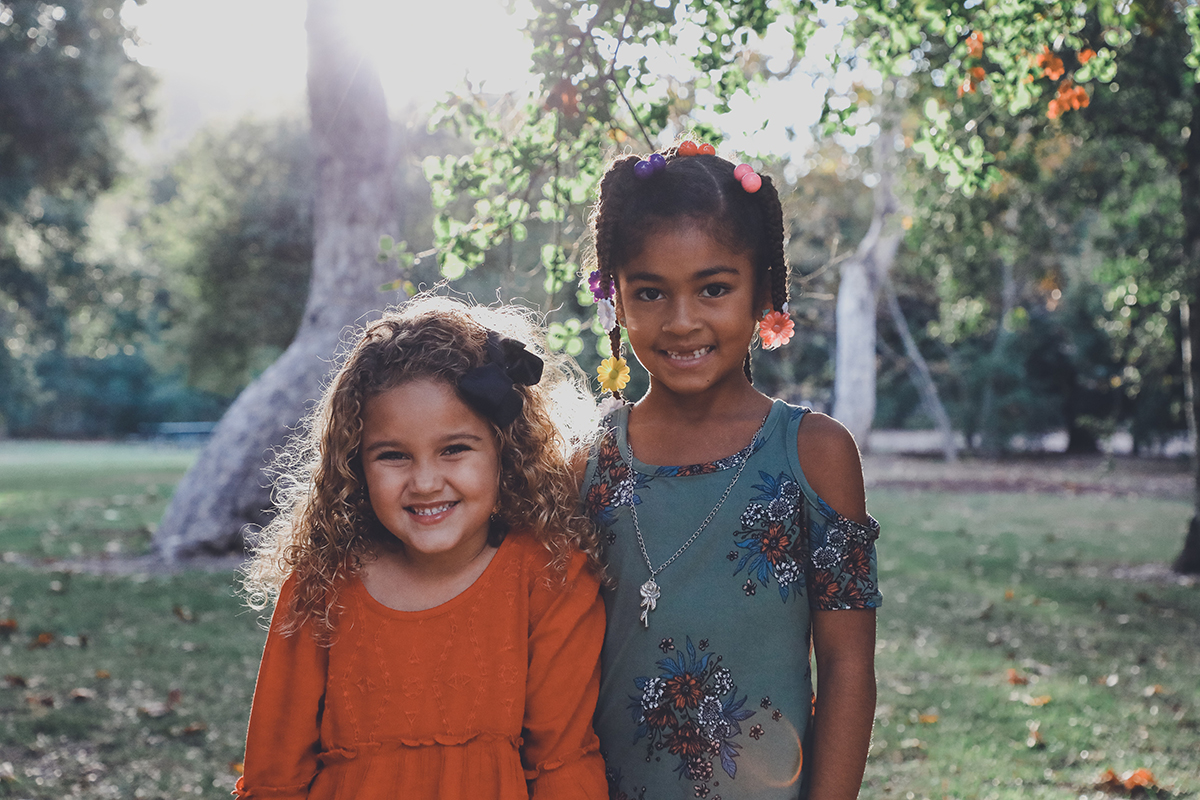Raising Race-Conscious Children: How to Get the Conversation Started

by Sandi Schwartz
When was the last time you talked to your children about racial differences?
Conversations about skin color typically start in preschool as children become more curious about other people and the world around them. Ebony Elizabeth Thomas, a professor of education at the University of Pennsylvania, said children are not waiting around for adults to talk about these issues. She found that kids are ready to discuss these topics early and are already doing so whether we realize it or not.
Many parents, however, shy away from talking about the world’s ugliness with their kids, hoping that they will stay naive and innocent for as long as possible. Thomas says this is not the best approach to take. It is more effective if we are in touch with our children earlier on and address these issues together as they grow.
It may be difficult to find the appropriate time or place to bring up race. Keep an eye out for opportunities that pop up, like a TV show, a book, a song, or an event that touches on the topic. Or maybe your young child notices that someone else has darker skin than they do. The more subtly you broach the topic, the easier it will be for both you and your child.
An article in Parenting magazine offered a really clever way to begin the conversation with young children. Invite them to cook some eggs with you in the kitchen. Be sure to have some white eggs and brown eggs. Ask your child what they notice about the eggs. What is different about them on the outside? Then crack the eggs together and ask them what they notice about the insides of the eggs. Point out how they are the same inside. Then make the link by explaining how eggs are just like people – they come in different shades, but they are the same on the inside. We should not judge someone by their appearance.
Tips for Teaching Children About Race
Because talking to our kids about race issues is such a challenging task, consider these helpful tips.
Examine your own biases first.
Before you even begin to talk to your children about racism, take some time to look inside yourself and acknowledge your own experiences, biases, or privileges that may influence how you address these issues. Don’t be afraid to share your own struggles about these topics with your kids. You can tell them that you are not an expert and want to work together with them to learn more. Consider taking the online test about bias created by Harvard experts.
Tell them the truth.
Racism is a very complicated issue that tends to be over-simplified to the detriment of children’s education. Be sure to use correct definitions and tell them about historical events like slavery and the Civil Rights Movement. Turn to expert resources, like the Teaching Tolerance website, that will walk you through the most effective ways to talk to your children about these issues.
Avoid generalizations and stereotypes.
Choose your words carefully. Not every certain type of person in a particular group believes the same thing. It’s important for children to remain open-minded and to understand that individuals are unique and have varying experiences and views.
To present time.
The most important reason to study the awful parts of history is to ensure that it does not repeat itself. Take time to draw links between events from the past with current affairs. Explain to your children that we are still fighting for equality for all.
Be a good role model.
Many Americans think people are “naturally” racist, that racism is genetic. This couldn’t be further from the truth. According to experts, humans are not born racist. Instead, racism is a product of history. Our children are watching and listening to us. Dr. Beverly Tatum, psychologist, educator, author, and past president of Superman College, suggests that the best way to reduce children’s prejudices is to model an inclusive home, demonstrating that we have friends of all backgrounds. She explains that “parents who have learned to lead multicultural lives, connecting with people different from themselves, are more likely to have children who develop these important life skills at an early age.”
Celebrate the positives.
Although there are some awful stories in our history of race relations in this country, it’s important to also focus on some of the heroes who fought for their freedom or continue to fight for equality today.
Encourage them to express their emotions.
Learning about racism can be very distressing. Give your children a safe space to reflect on how it makes them feel. Their emotions can range from anger, shock, frustration, sadness, hopelessness, and fear. Then ask them to look for ways to transform those negative emotions into positives, like hope and activism.








